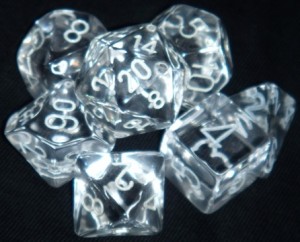On Friday we comb through our extensive archives to find an older article that we feel deserves another look. From October 21, 2009, Dungeon’s Master once again presents: Skill Focus – Diplomacy.
After Perception, Diplomacy seems to be the skill used most often in my games. Any time your PC finds himself in a social situation you know that you’re going to end up making a Diplomacy check. But Diplomacy is more that just talking the talk. It’s usually about knowing what to say and how to say it. Your PC’s body language can also have as much of an impact as the words coming out of his mouth.
Most skills are versatile on their own, but since Diplomacy is generally opposed by Insight it’s probably a good idea to take training in both if your class allows it. Any time a PC is engaged in a back-and-forth dialogue they’ll probably end up using both skills, so taking training in both will greatly improve your chances of success.
Whenever a PC speaks the truth the appropriate skill is usually Diplomacy. As soon as they start leaving out details, deliberately withholding information or outright lying it starts to tread on the ground of Bluff. If you’re trained in Diplomacy but not in Bluff (we’re looking at you Paladins and Clerics) then it’s up to you to convince your DM that a Diplomacy check is still the right one given the circumstances. Letting the Rogue speak only when the party needs to tell a lie is going to be a pretty obvious “tell” that you’ve trying to mislead the king or swindle the merchant.
It’s important to remember that in many circumstances you’re only going to get one shot at a Diplomacy check, so you’d better be sure that you make the most of it. You wouldn’t want to ruin a diplomatic dinner because you drank the lemon scented water that you should have used to wash your fingers.
